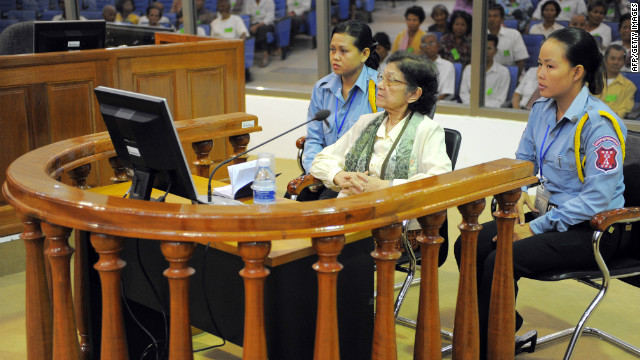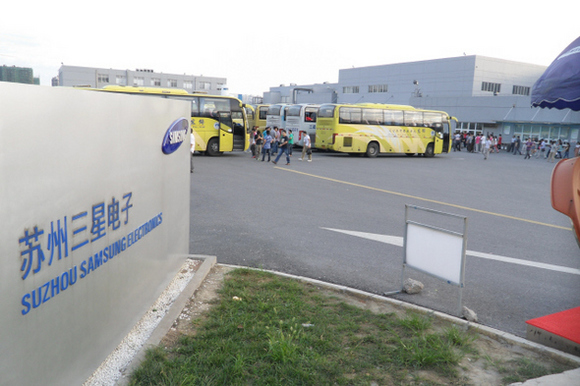By Karen Diep
Impunity Watch Reporter, Asia
PHNOM PENH, Cambodia – Yesterday, Cambodia’s UN-backed tribunal, responsible for prosecuting the members of the Khmer Rouge for crimes against humanity, released a statement that 80-year-old leng Thirith, the regime’s “first lady,” was unfit to stand trial.

“There is not prospect that the accused can be tried in the foreseeable future,” the tribunal stated.
Furthermore, Neth Pheaktra, a spokesman for the Extraordinary Chambers in the Court of Cambodia (ECCC), said that leng Thirith would be released today if prosecutors did not appeal the court’s decision.
According to Reuters, under the Khmer Rouge’s rule from 1975 to 1979, approximately 1.7 to 2.2 million people, nearly a quarter of the population, died from execution, torture, disease, and/or starvation as a part of the regime’s attempt to create a peasant utopia.
leng Thirith, Khmer Rouge’s highest-ranking woman, acted as its minister of social affairs, and the tribunal accused her of participation in the “planning, direction, co-coordination and order of widespread purges.” Leng Thirith was formerly charged with crimes against humanity, genocide, homicide, grave breaches of the Geneva Conventions, torture, and religious persecution.
However, according to Al jazeera, leng Thirith responded that the charges against her were “100 per cent false” and that she always worked for the benefit of the people.
According to CNN, in November of last year, proceedings against leng Thirith stopped after the ECCC decided that she suffered from dementia.
After pursuing additional medical assessments, the tribunal issued yesterday’s statement confirming that leng Thirith is suffering from a “progressive, degenerative illness (likely Alzheimer’s disease) and remains unfit to stand trial.”
The tribunal further confirmed that “all treatment options have [] been exhausted and that the accused’s cognitive impairment is likely irreversible.” The court’s conclusion disappointed many of the regime’s surviving victims.
“I cannot oppose the court, but I am not happy with its decision,” shared Bou Meng, one of few Cambodians to survive incarceration in Phnom Penh’s Tuol Slen jail (S-21), with Agence France-Presse. “The decision is mocking the souls of the dead, including my wife and children,” continued Mr. Meng whose wife and children never escapted S-21 alive.
The court has convicted S-21’s prison chief, Kaing Guek Eav, who oversaw the deaths of approximately 14,000 people. The tribunal sentenced Kaing Guek Eav to 35 years in prison but he may serve only 19 years.
However, Ieng Sary, the Khmer Rouge’s former foreign minister, Nuon Chea, also known as Bother No. 2, and the regime’s former head of state, Khieu Samphan, are still on trial. Moreover, prosecutors claimed that there is adequate evidence to charge a number other former members.
For further information, please see:
Al jazeera – Cambodia to free Khmer Rouge ‘first law’ – 13 Sept. 2012
CNN – ‘First lady’ of Khmer Rouge rules unfit for genocide trial – 13 Sept. 2012
Independent – ‘First lady’ of Khmer Rouge is judged ‘unfit to stand trial’ – 13 Sept. 2012
Reuters – ‘First lady’ of Cambodia’s Khmer Rouge mentally unfit, to be freed – 13 Sept. 2012



